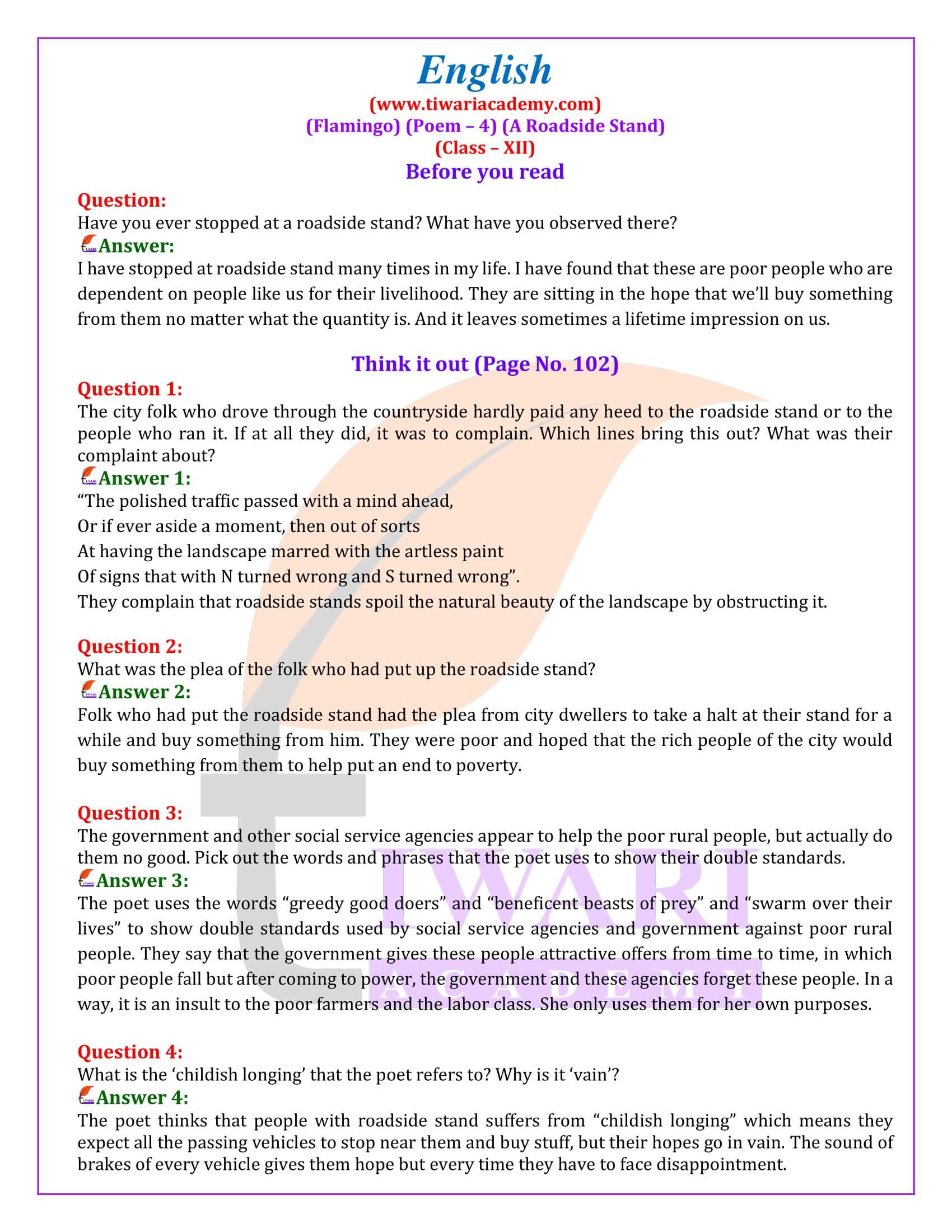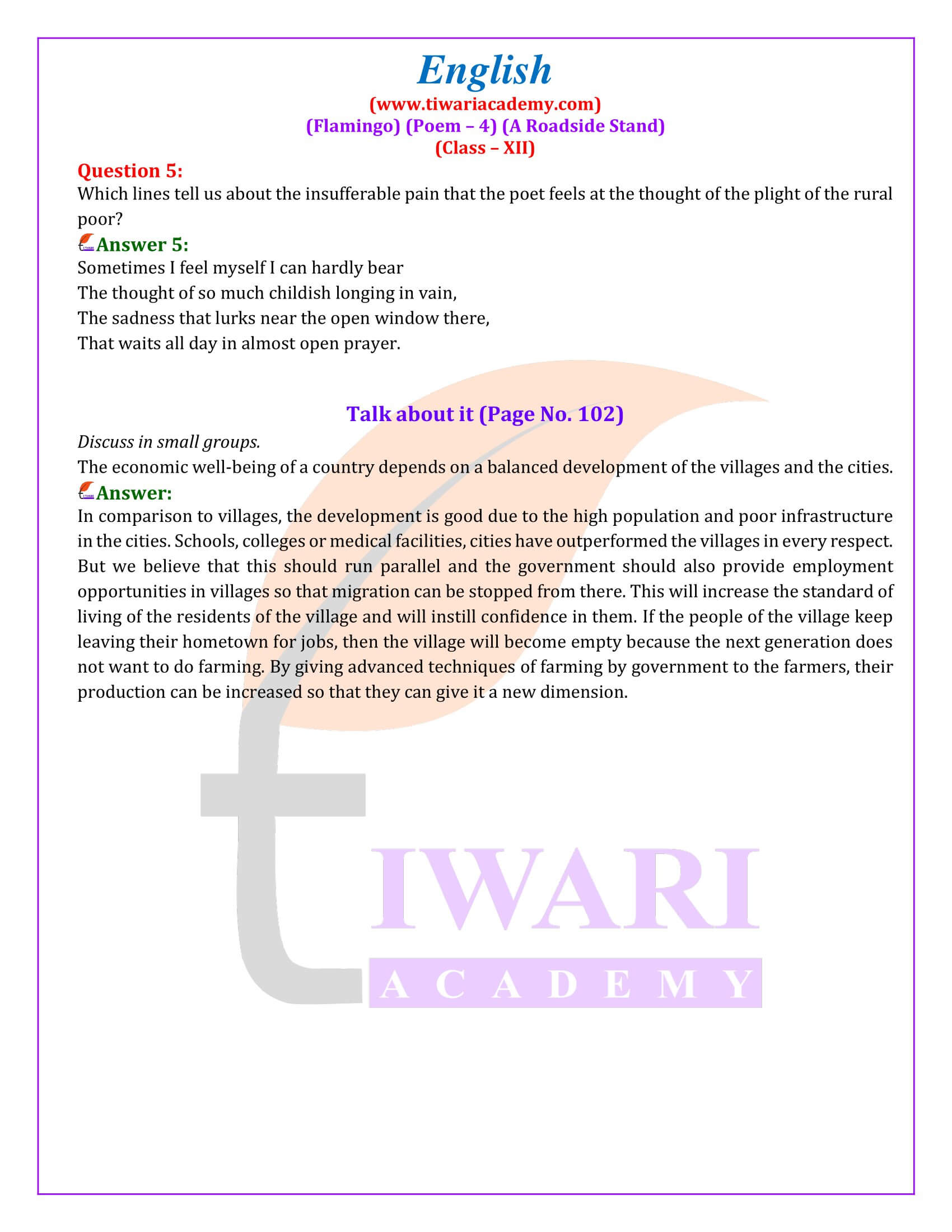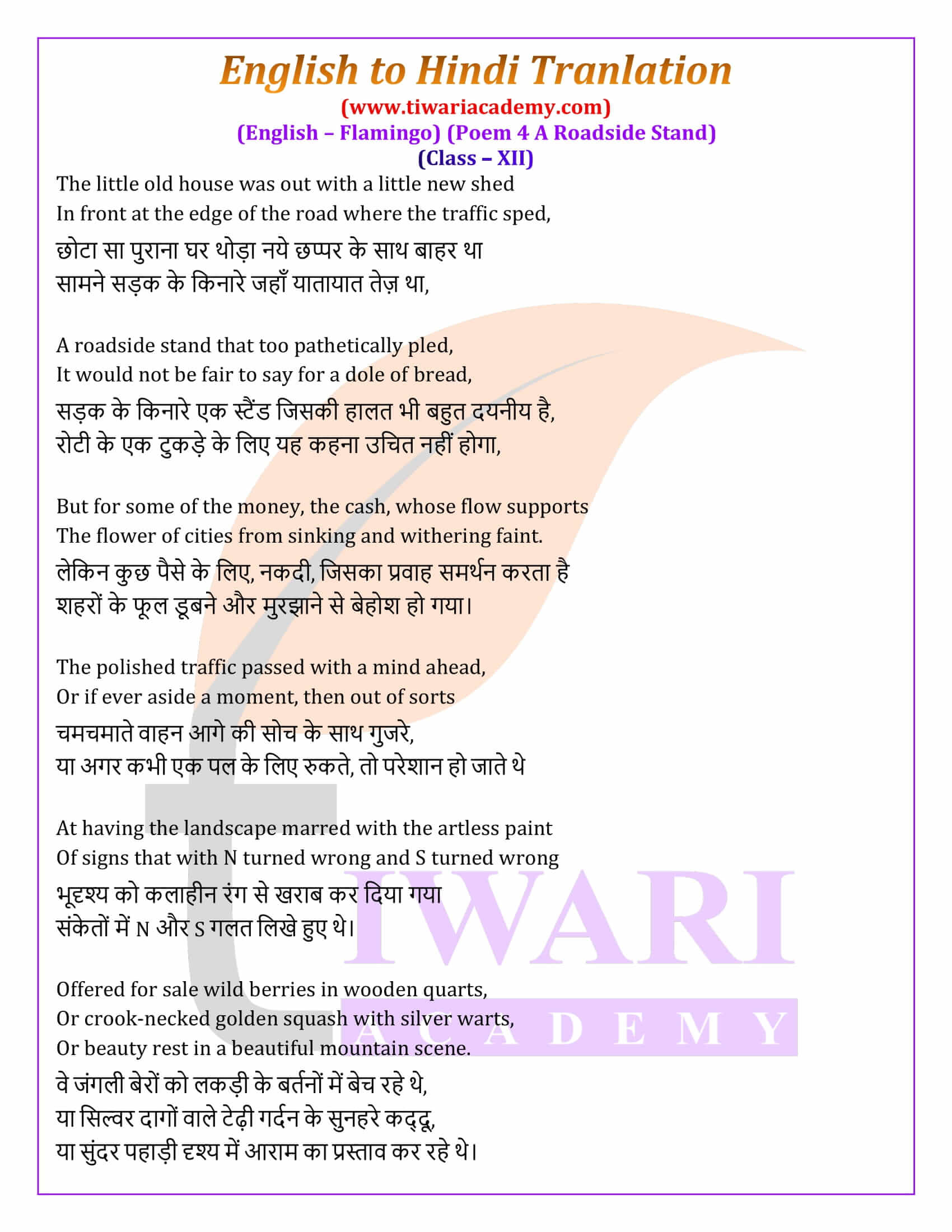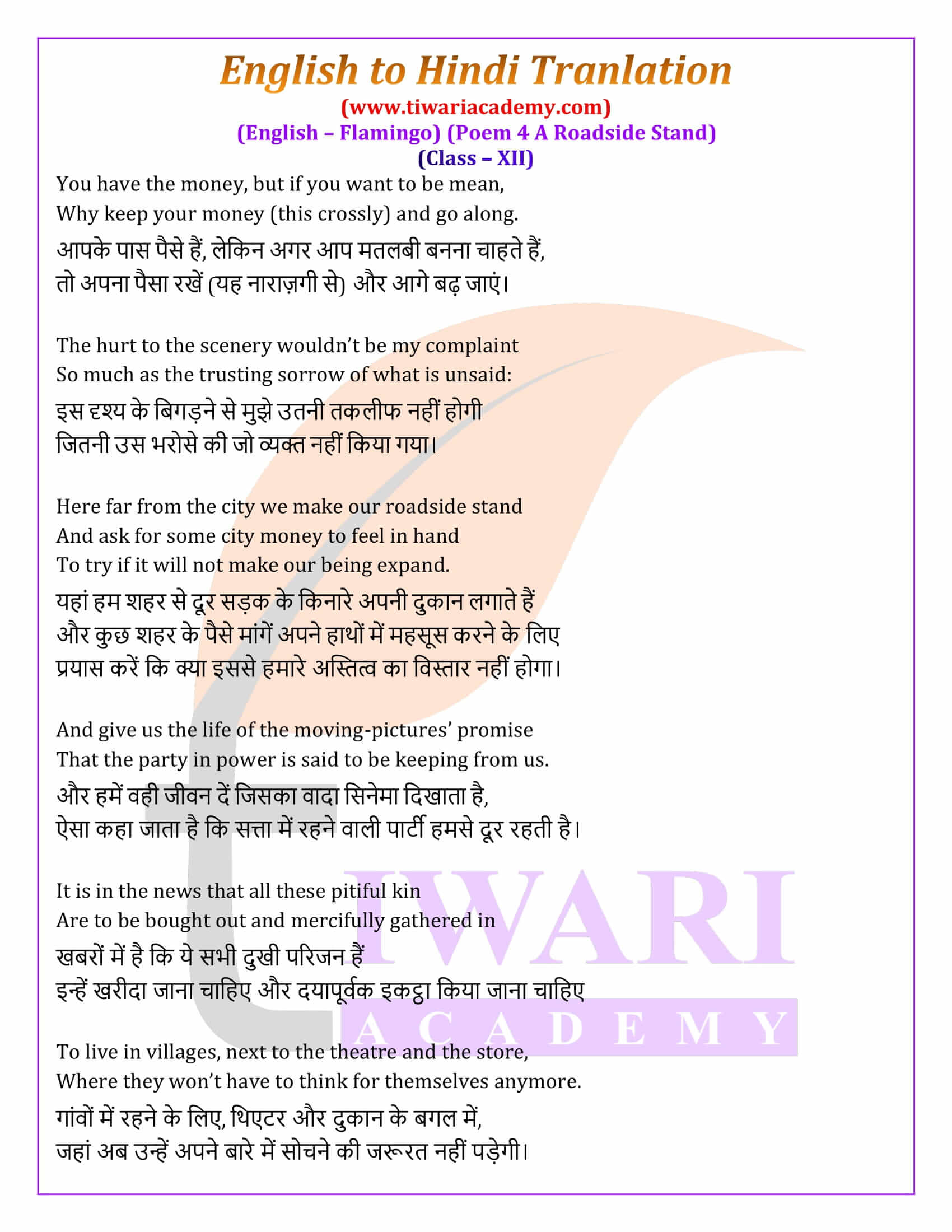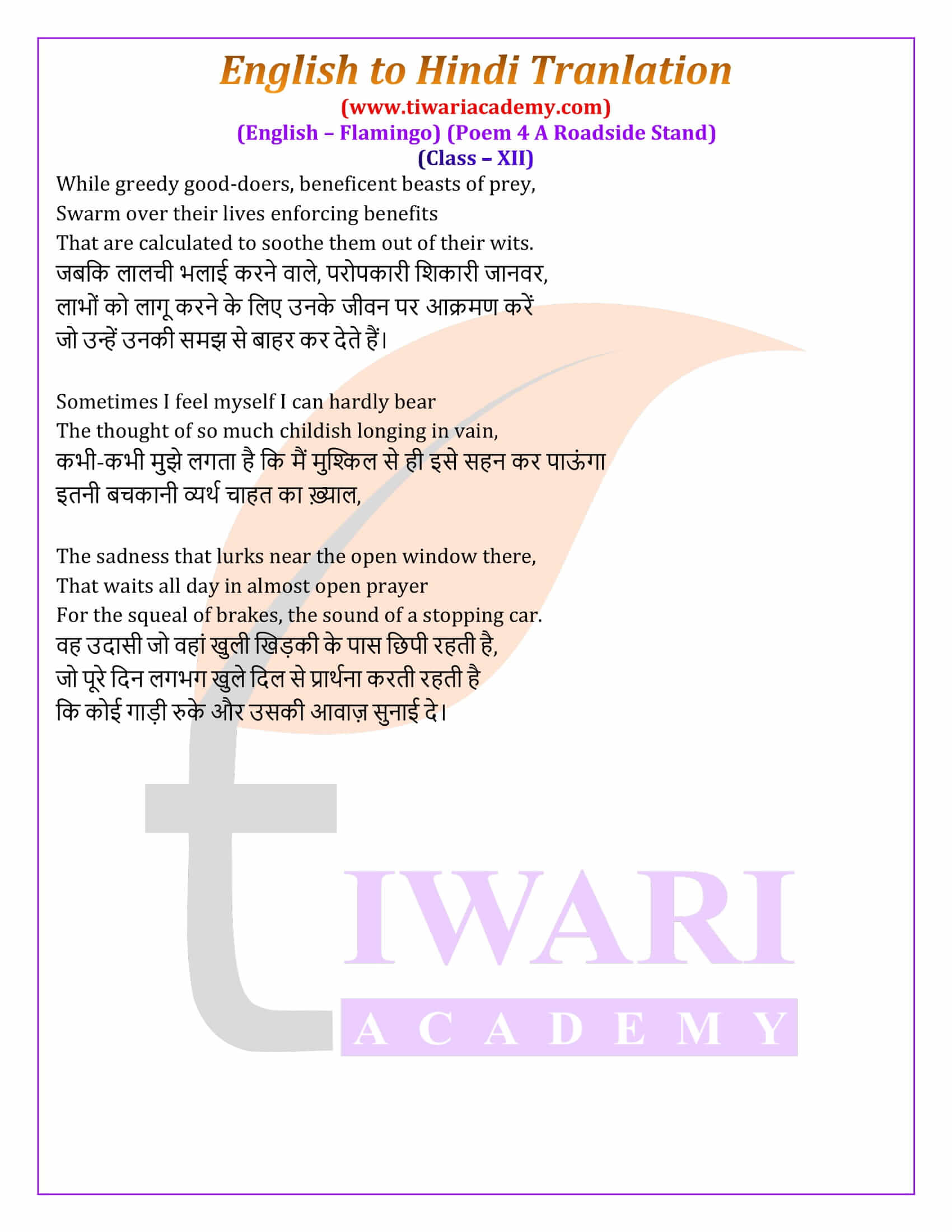NCERT Solutions for Class 12 English Poem 4 a Roadside Stand Hindi Translation updated for new academic session 2025-26. Use English to Hindi Translation and question-answers of class 12 English poem 4 exercises to prepare for school and board exams.
Before you read
Have you ever stopped at a roadside stand? What have you observed there?
I have stopped at roadside stand many times in my life. I have found that these are poor people who are dependent on people like us for their livelihood. They are sitting in the hope that we’ll buy something from them no matter what the quantity is. And it leaves sometimes a lifetime impression on us.
Think it out (Page No. 102)
The city folk who drove through the countryside hardly paid any heed to the roadside stand or to the people who ran it. If at all they did, it was to complain. Which lines bring this out? What was their complaint about?
The polished traffic passed with a mind ahead,
Or if ever aside a moment, then out of sorts
At having the landscape marred with the artless paint
Of signs that with N turned wrong and S turned wrong.
They complain that roadside stands spoil the natural beauty of the landscape by obstructing it.
What was the plea of the folk who had put up the roadside stand?
Folk who had put the roadside stand had the plea from city dwellers to take a halt at their stand for a while and buy something from him. They were poor and hoped that the rich people of the city would buy something from them to help put an end to poverty.
The government and other social service agencies appear to help the poor rural people, but actually do them no good. Pick out the words and phrases that the poet uses to show their double standards.
The poet uses the words “greedy good doers” and “beneficent beasts of prey” and “swarm over their lives” to show double standards used by social service agencies and government against poor rural people. They say that the government gives these people attractive offers from time to time, in which poor people fall but after coming to power, the government and these agencies forget these people. In a way, it is an insult to the poor farmers and the labor class. She only uses them for her own purposes.
What is the ‘childish longing’ that the poet refers to? Why is it ‘vain’?
The poet thinks that people with roadside stand suffers from “childish longing” which means they expect all the passing vehicles to stop near them and buy stuff, but their hopes go in vain. The sound of brakes of every vehicle gives them hope but every time they have to face disappointment.
Which lines tell us about the insufferable pain that the poet feels at the thought of the plight of the rural poor?
Sometimes I feel myself I can hardly bear
The thought of so much childish longing in vain,
The sadness that lurks near the open window there,
That waits all day in almost open prayer.
Talk about it (Page No. 102) Discuss in small groups.
The economic well-being of a country depends on a balanced development of the villages and the cities.
In comparison to villages, the development is good due to the high population and poor infrastructure in the cities. Schools, colleges or medical facilities, cities have outperformed the villages in every respect. But we believe that this should run parallel and the government should also provide employment opportunities in villages so that migration can be stopped from there. This will increase the standard of living of the residents of the village and will instill confidence in them. If the people of the village keep leaving their hometown for jobs, then the village will become empty because the next generation does not want to do farming. By giving advanced techniques of farming by government to the farmers, their production can be increased so that they can give it a new dimension.
